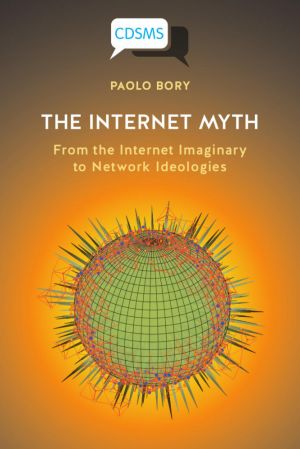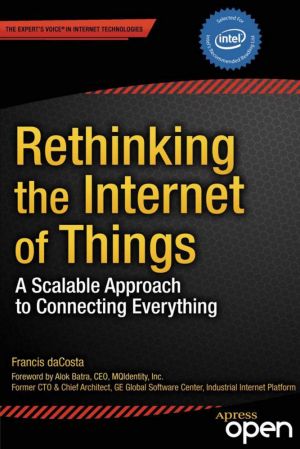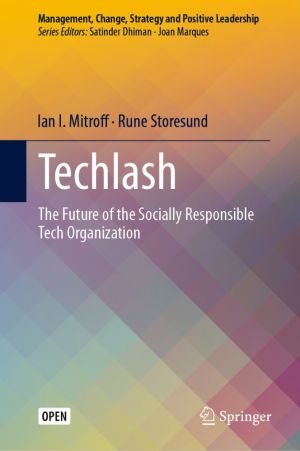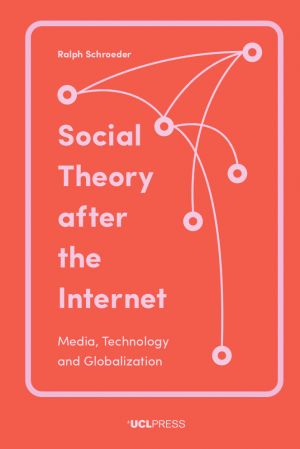Social Theory after the Internet
Media, Technology, and Globalization
by Ralph Schroeder
DescriptionTable of ContentsDetailsHashtagsReport an issue
Social Theory after the Internet focuses on everyday uses and effects of the internet, including information seeking and big data, and explains how the internet has gone beyond traditional media in, for example, enabling Donald Trump and Narendra Modi to come to power. Schroeder puts forward a sophisticated theory of the role of the internet, and how both technological and social forces shape its significance. He provides a sweeping and penetrating study, theoretically ambitious and at the same time always empirically grounded.The book will be of great interest to students and scholars of digital media and society, the internet and politics, and the social implications of big data. 






Book Description
The internet has fundamentally transformed society in the past 25 years, yet existing theories of mass or interpersonal communication do not work well in understanding a digital world. Nor has this understanding been helped by disciplinary specialization and a continual focus on the latest innovations. Ralph Schroeder takes a longer-term view, synthesizing perspectives and findings from various social science disciplines in four countries: the United States, Sweden, India and China. His comparison highlights, among other observations, that smartphones are in many respects more important than PC-based internet uses.Social Theory after the Internet focuses on everyday uses and effects of the internet, including information seeking and big data, and explains how the internet has gone beyond traditional media in, for example, enabling Donald Trump and Narendra Modi to come to power. Schroeder puts forward a sophisticated theory of the role of the internet, and how both technological and social forces shape its significance. He provides a sweeping and penetrating study, theoretically ambitious and at the same time always empirically grounded.The book will be of great interest to students and scholars of digital media and society, the internet and politics, and the social implications of big data.
This open book is licensed under a Creative Commons License (CC BY). You can download Social Theory after the Internet ebook for free in PDF format (11.7 MB).
Table of Contents
Chapter 1
The internet in theory
Chapter 2
Media systems, digital media and politics
Chapter 3
Digital media and the rise of right-wing populism
Chapter 4
The internet in everyday life I: sociability
Chapter 5
The internet in everyday life II: seeking information
Chapter 6
Big data: shaping knowledge, shaping everyday life
Chapter 7
Futures
Book Details
Title
Social Theory after the Internet
Subject
Computer Science
Publisher
UCL Press
Published
2018
Pages
210
Edition
1
Language
English
ISBN13 Digital
9781787351226
ISBN10 Digital
178735122X
PDF Size
11.7 MB
License

Related Books

The Internet Myth retraces and challenges the myth laying at the foundations of the network ideologies - the idea that networks, by themselves, are the main agents of social, economic, political and cultural change. By comparing and integrating different sources related to network histories, this book emphasizes how a dominant narrative has extensi...

Rethinking the Internet of Things was a 2014 Jolt Award Finalist, the highest honor for a programming book. And the amazing part is that there is no code in the book.
Over the next decade, most devices connected to the Internet will not be used by people in the familiar way that personal computers, tablets and smart phones are. Billions of inter...

This volume explores interdependencies between knowledge, action, and space from different interdisciplinary perspectives. Some of the contributors discuss knowledge as a social construct based on collective action, while others look at knowledge as an individual capacity for action. The chapters contain theoretical frameworks as well as experiment...

This book addresses the practice of social innovation, which is currently very much in the public eye. New ideas and approaches are needed to tackle the severe and wicked problems with which contemporary societies are struggling. Especially in times of economic crisis, social innovation is regarded as one of the crucial elements needed to move forw...

The overall aim of this book, an outcome of the European FP7 FET Open NESS project, is to contribute to the ongoing effort to put the quantitative social sciences on a proper footing for the 21st century. A key focus is economics, and its implications on policy making, where the still dominant traditional approach increasingly struggles to capture ...

Technology has made human lives incomparably better. Civilization as we know it would utterly collapse without it. However, if not properly managed, technology can and will be systematically abused and misuse and thereby become one of the biggest threats to humankind. This open access book applies proactive crisis management to the management of te...

